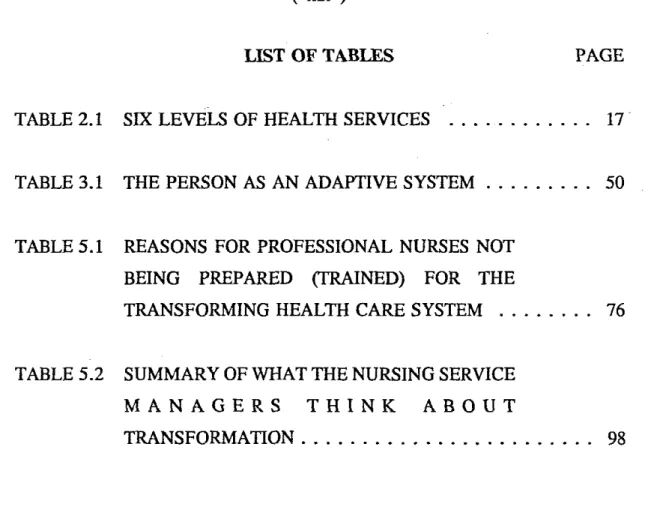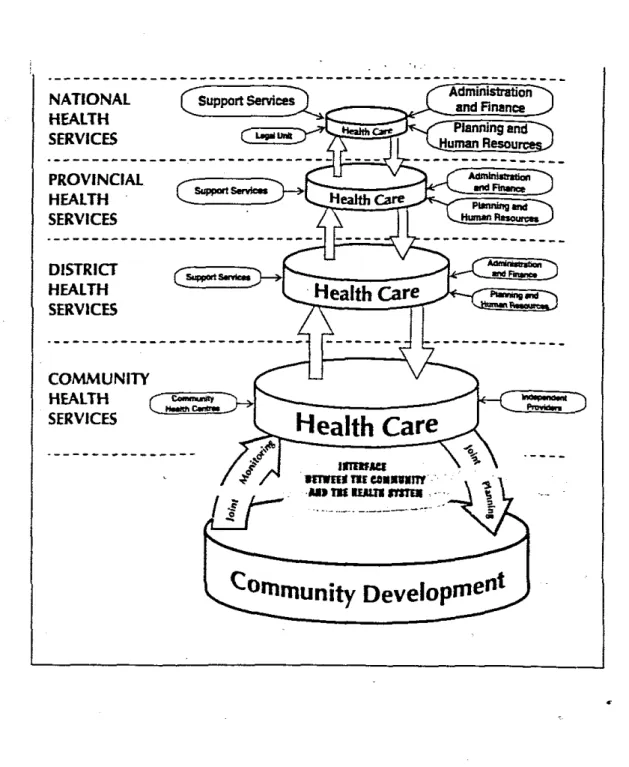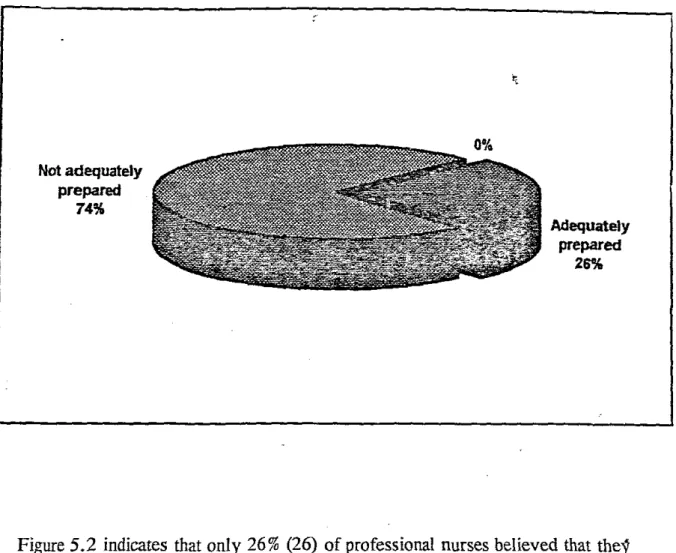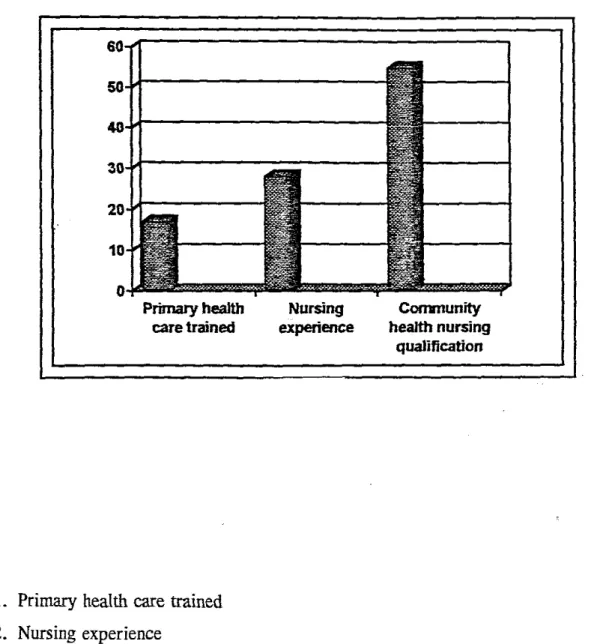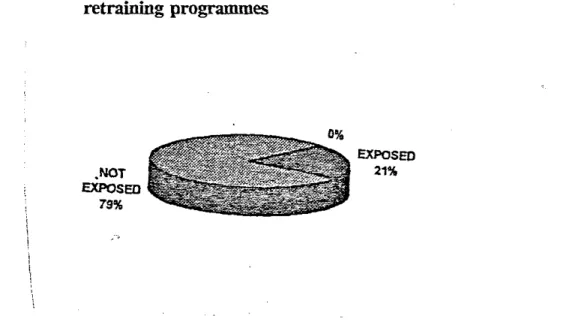This is a study which aimed to evaluate the perception of professional nurses' preparedness in relation to the human resource development strategy for the transforming health system in KwaZulu-Natal province. The study revealed that professional nurses were not all aware of the change in healthcare. The researcher undertook a study of perceptions of professional nurses' preparedness for the transforming healthcare system in South Africa.
The question is: "Are the majority of professional (registered) nurses adequately prepared for Comprehensive Primary Health Care?". In the context of this study, human resource development refers to training of professional nurses.
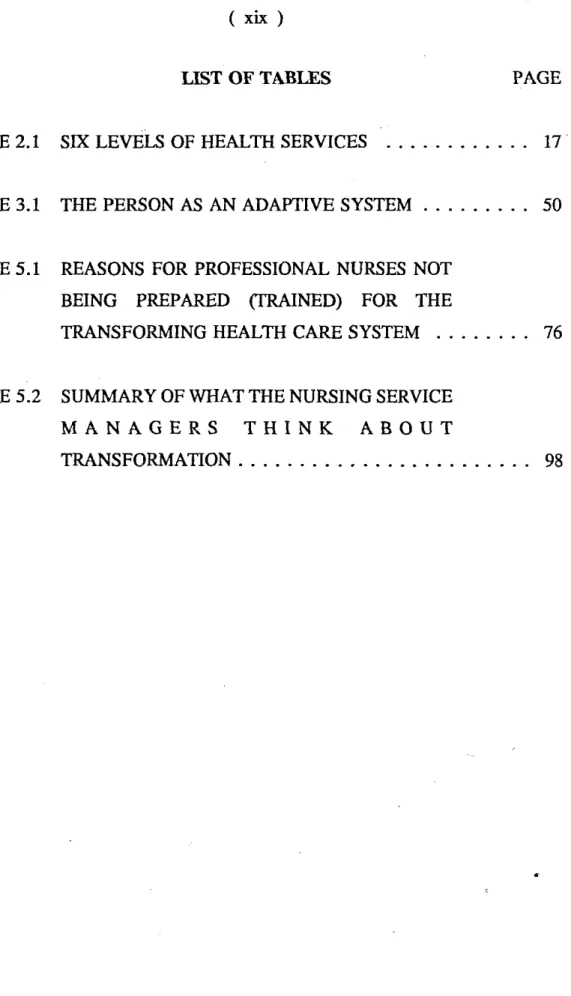
OUTLINE OF THE STUDY
BACKGROUND INFORMATION AND STATEMENT OF THE
MOTIVATION FOR THE STUDY
The researcher was motivated to conduct a study to assess the perceptions of current professional nurses' readiness for the comprehensive approach to primary health care as shown and defined in the White Paper Towards a Transformed Health Service published in April 1997. Since the researcher has been involved in current professional (registered) nurse training for 7 years, she is of the opinion that the 4-year Comprehensive Basic Nursing program, although it has a community health nursing component, does not prepare a nurse who would fit the health in transformation. the service. For effective reorientation of existing professional nurses to occur, they must provide direction on how to reorient and retrain to a community-based district health system.
It is the researcher's belief that existing human resource development programs designed to develop health professionals who will work in the transforming health care system should be evaluated. The researcher therefore conducted a quantitative descriptive study, where the respondents expressed their opinions, feelings, needs and suggestions about suitable retraining programs.
ASSUMPTION ~
In the context of this study, transformation refers to the change of the healthcare system towards a national healthcare system. DEVELOPMENT OF THE NATIONAL HEALTH SYSTEM IN SOUTH AFRICA AND HUMAN RESOURCES TO PROVIDE HEALTH CARE IN A. According to the 1994 National Health Plan, the Primary Health Care Approach is the underlying philosophy for restructuring the health care system (ANC.
The primary health care approach focuses on the individual, family and community. A district health system based on primary health care is a more or less self-contained part of the national health care system. From 1981, the scarcity of doctors in African areas was recognized and the law changed to allow nurses to perform procedures traditionally in the field of medicine (Section 38A of the Nursing Act (No. 50 of 1978) to the Nursing Act (No. 71 of 1981).i) The Diploma in Clinical Assessment, Diagnosis, Treatment and Care was introduced in 1982 as a post-basic course to prepare professional nurses to provide care in a primary care setting when the physician is unavailable, such as usually the case ( Points ii) Introduction of the 4-year course.
Bushy maintains that further training of staff is a critical element in bringing about change within an institution.;-, The post-secondary schools and the staff.
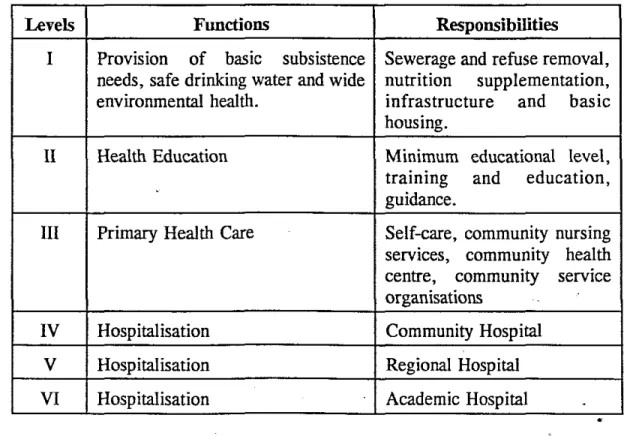
INTRODUCTION
DEVELOPMENT OF ROY'S ADAPTATION MODEL
BASIC ASSUMPTIONS OF THE ROY ADAPTATION MODEL
To deal with a changing world, the person uses both innate and acquired mechanisms, which are of biological, psychological and social origin. The person's adaptation is a function of the stimulus to which he is exposed and his level of adaptation. The person's level of adaptation is such that it includes a zone that indicates the range of stimulation that will lead to a positive response.
The person is conceptualized as having four modes of adaptation: physiological needs, self-concept, role functioning, and interdependent relationships.
ELEMENTS OF ROY'S ADAPTATION MODEL
- The person 50
- The environment
- The person and environment
- Health
- Nursing 56
- Assessment of behaviour or first level assessment
- Assessment of influencing factor or second level assessment
Reorienting professional nurses to primary care can enable them to cope with the transformation. The response of professional nurses to the transformation of the healthcare system was also channeled through the adaptive modes, depending on the needs of the individual. The transformation of the healthcare system challenges professional nurses to formulate new responses to adapt to the change.
The behavior that is of particular interest to the researcher in the study is the response of professional nurses to the transformation of the healthcare system. This question was included to determine whether professional nurses were aware of the transformation of the healthcare system. Figure 5.3 Reasons for the belief of professional nurses that they are adequately prepared to function in a transformed healthcare system.
This literature therefore matches the expressions of the majority of professional nurses that they were not adequately prepared to function effectively in a changing health care system. Professional nurses were concerned that they were not formally informed about the transformation of the healthcare system. The needs are in line with some proposed strategies to enable professional nurses to adapt to the changing health care system.
According to Fig. The heads of the nursing service A and C stated that the professional nurses in their institutions were not adequately prepared (trained) for effective functioning in the healthcare system in the transformation, which is oriented towards primary healthcare. Deputy Regional Director C'je said that professional nurses in her region were prepared (trained) to function effectively in a changing health care system that is oriented towards primary health care. Nursing manager A also explained that the professional nurses in her institution were not adequately prepared because they did not have primary nursing skills.
These strategies aimed to create an enabling environment for professional nurses to adapt to the transforming health care system. Data analysis revealed that professional nurses were not adequately prepared to function in the transformative health care system that is oriented toward primary health care.
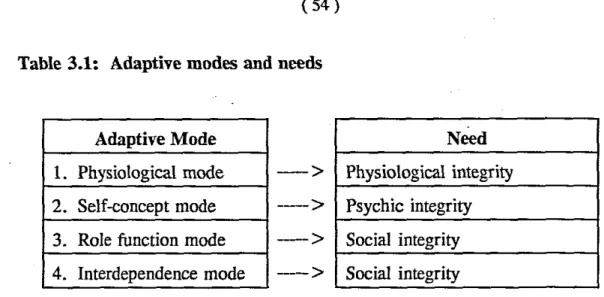
INTRODUCTION
SUMMARy
METHODOLOGy
- Research design 104
- Data analysis
A questionnaire was sent to deputy regional directors of the three health regions where the three respective hospitals are located. This was obtained from the head office of the Department of Health in the province of KwaZulu-Natal and the medical superintendents of the three (3) institutions. The respondents were given an explanation to obtain their informed consent and the option to participate.
Data were collected and analyzed manually by the researcher; both the information collected using an interview form and that collected using a questionnaire.
CONCLUSIONS 105
- Objective 106
To evaluate the willingness of professional (registered) nurses to participate effectively in the transformative health care system that is inclusive of primary health care. 51%(51) of professional nurses explained that they had never been briefed by their supervisors or management and were therefore unaware of the changes in the health care system. Professional (registered) nurses are not adequately prepared (trained) to participate effectively in the transformative health care system that is inclusive and focuses on primary health care.
74% (74) of the professional nurses believed that they were not adequately prepared to function effectively in the changing health care system. 66.7% (2) of the managers of the nursing service believed that the professional nurses in their institutions were not sufficiently prepared for the transforming health service, which is primarily health service oriented. 66.7% (2) of the deputy regional directors were of the opinion that professional nurses in their health regions were not adequately prepared to function effectively in the transforming health care system, which is primary health care oriented.
According to this finding, there is a consensus among professional nurses, nursing leaders and regional deputy directors that professional nurses are not adequately prepared to function in the transforming healthcare system based on the primary health care model. The Committee on Human Resource Development for Health also noted that nurses have been trained in academic hospitals that are not primary health care oriented and therefore are not adequately trained for primary health care. The assumption that current professional (registered) nurses have not been adequately prepared to participate in the transforming healthcare system was confirmed by the above findings.
The National Health Plan states that the transformation of the health system into a primary health care system will require the reorientation of existing personnel. The reconstruction and development program also emphasizes that there must be a program of retraining and reorientation of existing health workers to a primary health care approach (ANC,1994(b):50). The White Paper "Towards a National Health System", published by the Ministry of Health in 1997, also states that an understanding and emphasis on primary health care should be inculcated in all existing health personnel through appropriate reorientation programmes.
RECOMMENDATIONS
At the time, the study only involved three chief nursing officers and three regional deputy directors, which makes it difficult to generalize.
FUTURE RESEARCH
PRESENTATION OF THE PROPOSED MODEL
- National and Provincial Health Departments 112
The curriculum for the basic education of health care professionals should be revised to focus on Primary Health Care. Continuous consultation with all stakeholders and coordination at all levels of the health care system cannot be overemphasized. This will enable the latter to cope with the changing circumstances of the health care service.
The South African Health Care System is being transformed towards a comprehensive Primary Health Care approach. To assess the readiness of professional nurses to effectively participate in the transforming health care system focused on Comprehensive Primary Health Care. Are you adequately prepared (trained) to function effectively in the transforming healthcare system.
Are there any restructuring or retraining programs that you have undergone in preparation for your role in the transforming healthcare system. Have you been adequately prepared (trained) to manage a nursing service that is changing to provide comprehensive primary health care. Professional nurses in your nursing service must provide nursing care within the transforming healthcare system.
Are professional nurses in your institution sufficiently prepared (educated) to function in the transforming healthcare system. Are there any strategies that you, as a leader, have put in place that I implemented to ensure that professional nurses can adapt to the transforming health care system. Has your department initiated/implemented any strategies to ensure that professional nurses can adapt to the transforming healthcare system”.
